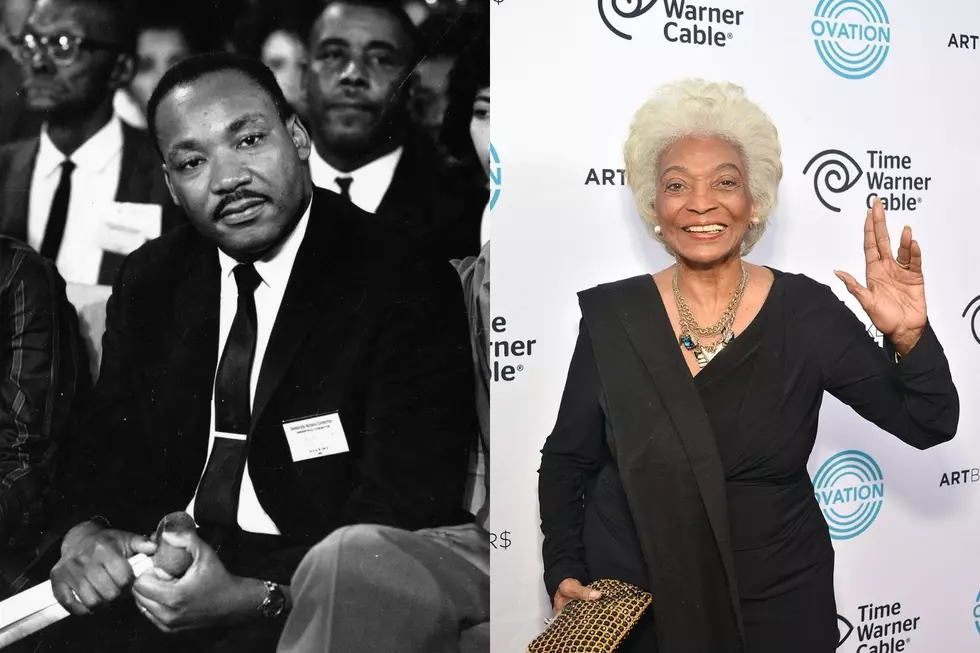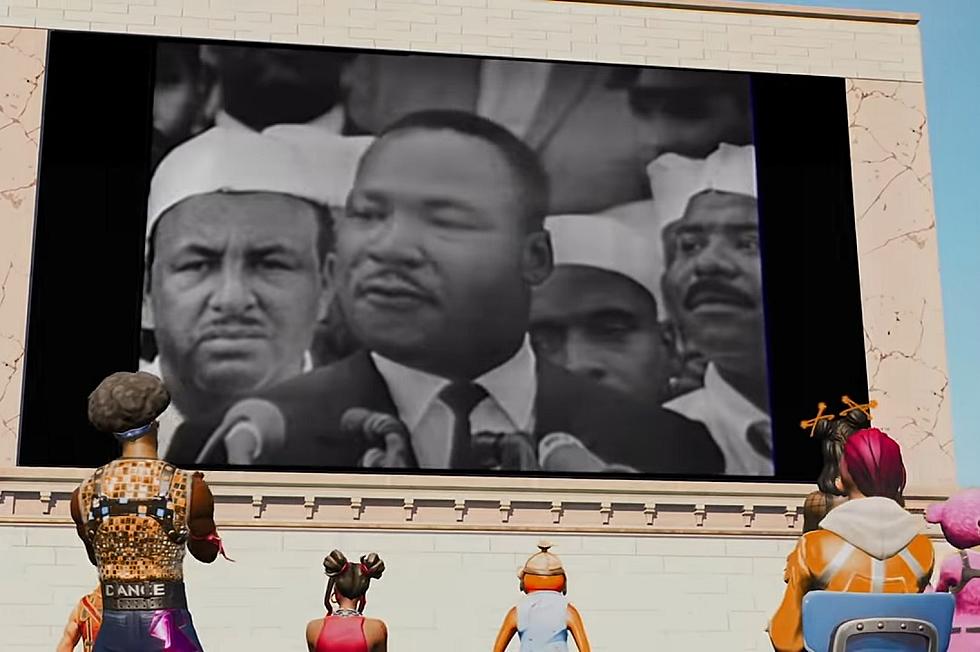
How Martin Luther King Inspired Nichelle Nichols to Stay on Star Trek

When Star Trek debuted on television in 1966, it brought with it a new vision of the future and humanity's place in the universe.
Unlike most sci-fi properties at the time, it wasn't just a show about zapping aliens and conquering the stars. It was about peaceful exploration for the sake of discovery and innovation, and about finding humane solutions to very real moral and ethical conundrums.
Sure those conundrums played out on cheesy cardboard sets that were supposed to be flashy spaceships or exotic planets, but the show was firmly rooted in the moral and political questions and crises of the time.
Here on Earth, and in America in particular, people of color were uniting to battle systemic and cultural injustices and to demand the respect and basic dignity that should be afforded to every human being. It was a time when many people probably felt American society was tearing itself apart (sound familiar?), and Star Trek didn't shy away from issues of race and discrimination.
But it wasn't just the drama of episodes like "Let That Be Your Last Battlefield" that shined a spotlight on the absurdity of racism and how it can cost people their freedom and their lives. The mere presence of one Enterprise crew member in particular served as a way of normalizing the idea of not only women having an important role to play in humanity's future, but people of color as well.
Nichelle Nichols, who'd already made waves with her acting, modeling, and singing, was cast as Lieutenant Nyota Uhura, who served as a member of the Enterprise bridge crew. This was 1966, at a time when leaders of the Civil Rights movement were still being killed or were in constant danger simply for asking that they be afforded basic rights, and here was a Black woman not only serving on what was essentially a submarine crew in space, but acting as a respected senior officer. She was the ship's chief communications officer, as a matter of fact.
Ratings for the first season of Star Trek were respectable, but never great, and by the time Nichelle Nichols met Dr. Martin Luther King Jr. at an NAACP fundraiser, she was thinking of leaving the show to pursue opportunities on Broadway.
Dr. King asked to meet Nichols at the event because, as it turned out, he was a big fan of the show. According to Nichols, he said it was the only television program he allowed his children to stay up late and watch.
When Nichols told Dr. King she planned to leave the show, he convinced her that what she was doing was of vital importance, and that she couldn't leave the Enterprise.
"He said, 'You cannot'", Nichols recounts in the interview below. "He said, 'Don't you understand what this man (Star Trek creator Gene Rodenberry) has achieved? For the first time on television, we will be seen as we should be seen every day - as intelligent, quality, beautiful people who can sing, dance, yes, but who can go into space, who can be lawyers, who can be teachers, who can be professors, who are in this day, and yet you don't see it on television until now.'"
Dr. King said that Rodenberry and Nichols had opened a door for the world to see Black people, and that the door could be closed if she were to leave.
"Your role is not a Black role, and it's not a female role," King said. "He can fill it with anything, including an alien."
Nichols had recently handed Gene Rodenberry her resignation. He'd told her to take the weekend to think about it, and when she returned Monday after her encounter with Dr. King, she took it back. Rodenberry, she says, was relieved to hear the story, because he felt that at last a prominent figure had realized what he was trying to achieve with Star Trek.
Throughout history, humans have used the stories they share with one another as a way of not only depicting the world as it is, but how we think it ought to be. In our time, Star Trek has been doing that for decades.
Nichols' role in the show not only inspired other performers like LeVar Burton and Whoopie Goldberg (who both played beloved characters in Star Trek: The Next Generation), but real life space explorers as well. Nichols formed a group called Women in Motion, which worked with NASA to recruit women and people of color into the space program. Among those recruited under her watch were Sally Ride, the first American female astronaut, and Guion Bluford, the first African-American astronaut.
These days, Star Trek: Discovery features the most diverse crew in the franchise's history, with a woman of color serving as the central character. While that's definitely cause for celebration, it's always worth looking back at the woman who paved the way for that spirit of inclusion and representation and the great leader who encouraged her to stick with Trek at a time when that spirit mattered the most.



